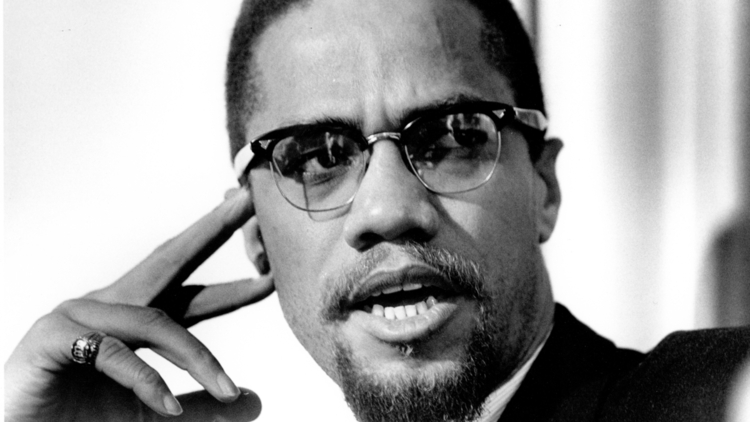
Please note: This event took place in May 2015
Malcolm X continues to provide inspiration, controversy and debate today. In this panel discussion Karen Alexander (writer and curator), Roger Griffith (commentator and author), Edson Burton (historian and writer), Madge Dresser (historian) and Jendayi Serwah (community activist and entrepreneur) unite to examine his legacy through film. In the context of Obama's presidency, has what Malcolm X argued and campaigned for become irrelevant? How does Malcolm's story of radicalisation relate to race, class, and religion today? Join us to discuss the man, the method, and the message.
Speaker biographies:
Karen Alexander is an independent film curator, writer and freelance consultant. She has been a senior tutor in the Royal College of Art's Curating Contemporary Art department with responsibility for the work-based pathway (Inspire). Prior to that she worked as a film curator and freelance consultant on film exhibition and distribution. She has contributed to several books on film including British Cinema of the 90s (1997), Women and Film: Sight & Sound Reader (1999), and If Looks Could Kill (2008). From 1998 until 2006 she worked at the British Film Institute, with responsibility for the strategic marketing of BFI Distribution and Archive cinema releases.
Dr Edson Burton is a writer and historian who's broad interest in Black History, Literature and Culture is united by his commitment to challenge and to reimagine Black experience. Edson solidified his long standing relationship with the Watershed in 2014 when he curated last year's highly successful Afrofuturism season as part of BFI Scifi: Days of Fear & Wonder. Edson work overlaps with his role as a project coordinator at the Trinity Arts Centre 3ca.org.uk. He is also part of Come The Revolution a collective of curators, programmers and creatives from Bristol & Birmingham committed to exploring and challenging black life, experience and cultural expression through cinema.
Dr Madge Dresser is an Associate Professor in Social and British History at the University of the West of England and a Fellow of the Royal Historical Society. She has published widely on the history of slavery and its impact on British society. Born in California, she is a graduate of UCLA, LSE and the University of Bristol including a post-graduate professional diploma in Radio, Film and Television. In the past 5 years, she has researched and taught on the legacy of the slave trade at Virginia State University in Richmond, Virginia, served as a Gilder Lerhman Research Fellow at Colonial Williamsburg, Virginia and a Clark Research Fellow at UCLA in 2013. She is a Trustee of 'Journey to Justice' a human rights non-profit organisation which is currently showcasing a travelling exhibition on the US Civil Rights movement and its relation to British issues of racial justice. Her numerous appearances on Radio and Television include her being featured last Summer on Radio 4's 'Great Lives' series in a programme on the African American anti-lynching campaigner Ida B. Wells.
Roger Griffith is a successful social entrepreneur and local radio personality on a community radio station Ujima Radio CIC where he is a co-owner. After leaving school without qualifications he found the value of education through learning about his heritage and identity. He has a passion for sharing stories, observations and insights on a perspective seldom shown - through a black man's eyes. Roger writes a monthly column for a cultural online magazine Bristol 24/7 and regularly appears as a pundit on BBC Bristol on the issues of race. He works tirelessly to promote those from disadvantaged and diverse backgrounds who consider themselves without a voice or opportunity. He is part of Come The Revolution... a collective of curators, programmers and creatives from Bristol and Birmingham committed to exploring and challenging black life, experience and cultural expression through cinema.
Jendayi Serwah is a community activist, an entrepreneur and mother of three. She is the founder of the John Lynch Afrikan Education Programme in Bristol, who have spearheaded many programmes over the last 24 years designed to elevate the consciousness of people of Afrikan heritage and mobilise the community into self determined action in pursuit of justice, to reduce the impact of the legacy of damage affecting that community trans-generationally for the last 500 years. As a reflection of this, she was also elected to become one of the co-vice chairs of the emerging National Afrikan Peoples Parliament, later co founding the Global Afrikan people's Parliament, and is instrumental in steering its course towards being a permanent institution of note acting on behalf of people of Afrikan heritage in the UK and beyond.